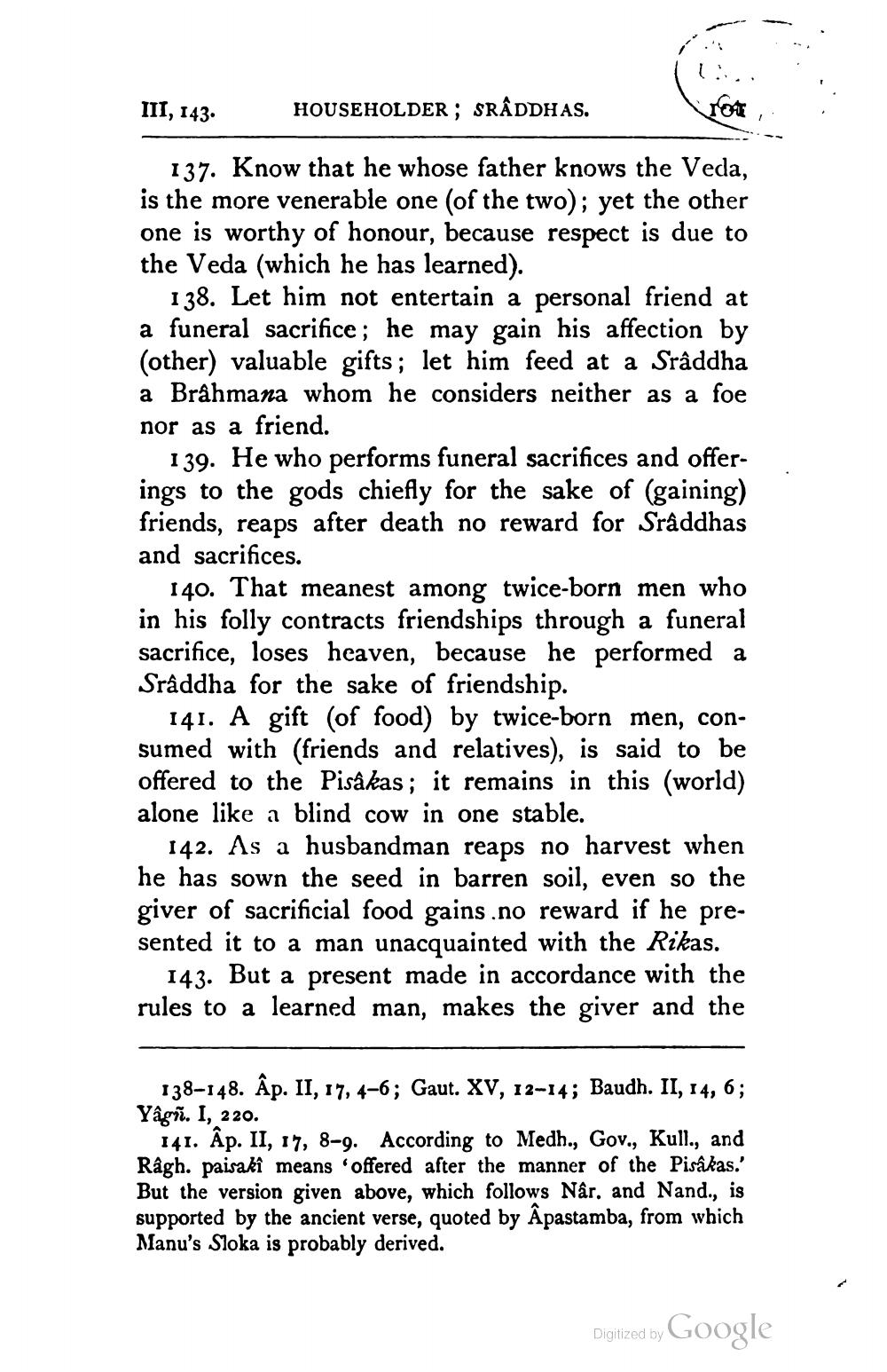________________
rou
III, 143.
HOUSEHOLDER; SRADDHAS.
137. Know that he whose father knows the Veda, is the more venerable one (of the two); yet the other one is worthy of honour, because respect is due to the Veda (which he has learned).
138. Let him not entertain a personal friend at a funeral sacrifice; he may gain his affection by (other) valuable gifts; let him feed at a Srâddha a Brahmana whom he considers neither as a foe nor as a friend.
139. He who performs funeral sacrifices and offerings to the gods chiefly for the sake of (gaining) friends, reaps after death no reward for Srâddhas and sacrifices.
140. That meanest among twice-born men who in his folly contracts friendships through a funeral sacrifice, loses heaven, because he performed a Srâddha for the sake of friendship.
141. A gift (of food) by twice-born men, consumed with (friends and relatives), is said to be offered to the Pisâkas; it remains in this (world) alone like a blind cow in one stable.
142. As a husbandman reaps no harvest when he has sown the seed in barren soil, even so the giver of sacrificial food gains.no reward if he presented it to a man unacquainted with the Rikas.
143. But a present made in accordance with the rules to a learned man, makes the giver and the
138-148. Âp. II, 17, 4-6; Gaut. XV, 12-14; Baudh. II, 14, 6; Yâgn. I, 220.
141. Ap. II, 17, 8-9. According to Medh., Gov., Kull., and Râgh. paisakî means 'offered after the manner of the Pisâkas.' But the version given above, which follows Nâr. and Nand., is supported by the ancient verse, quoted by Âpastamba, from which Manu's Sloka is probably derived.
Digitized by
Google




